1And Antoninus sayth in 4ta te sūmæ tit .16. c. 16. 1o § 2. that Astrology is reveable as it taketh giveth iudgment of mans actions, as enforcing men to goodnes or badnes vertu or vice & of Suth {sic} Astrologye sayth St Ambrose that sutch astronomy or astrology is worthely to be despised & reiected of all good Christians because it fiteth nothing to salvation but plungeth men into falshood & error. now if any not fully satisfyed wth that wch hath beene sayd, will further obiect yt they Counse holy counsels & decrees synodꝭ of holy bishops condēne them Astrologie. As the Councell called Ancyritanū in the 26 chap. quest 5. where it playnly sayth they wche seeke aftr {sic} divinations & followe the ritꝭ of the & fashions of the gentiles let them be silenced for 5 years here we answer that iudiciall astrologie yt vseth celestial & naturall signes in her iudgment not exceeding the lawfull bounds of nature is not by this counsell reved but only that D kind of divination wch is by Necromancye, geomantie aeromancye hydromancy pyromancy & sutch leeke. Agayne if they bring agaynst Astrologe {sic} the counsell of Tolledo. chap. If any. where {Sb} artꝭ are iudged worthy to be hanged out of the way, that consulte wth enchaunters, Southsayers, Diviners, or any that do fes magick or any sutch vnlawfull & dānable artes. to this we answere as before. yt it is plyne {sic} & evident that this councell all magicall artꝭ & artꝭ of sorcery. if any bring but thou wilt say that the Civill lawes & Constitutions of emperours cōdēne Astrologie L. 9. c. d|of| de maleficijs It is lawfull to exercise the art of geometrye but the art called mathematica. of mathematickes is dānable & vtterly forbidden & the Christ: emperour vnderstandeth by the mathematicall art Astrology iudiciall as he sayth. & furthr {sic} if they argue agaynst, by the lawe {Nowe} in the same place, let no man aske counsell of a southsayier or a mathematicion vndr the penalty of the losse of his head.
These obiections cannot be better answered then out of the lawe it selfe. & therfore we answer that that {sic} by the art mathematicall wch is by the civill lawe cōdemned, is not to be vnderstood any othr {sic} art then that of necromancy southsaying sorcery or magicall divination there be that answere this obiection anothr way. who say asseyle the obiection thus that this worde mathematica) mathematicall is taken eithr wthout an aspiration or wth an aspiration. wth\out/ an aspiration it seemeth to be derived a ματέυειν wch signifyeth to dote & so this word mathematica \they word/ mathematica signi implyeth a kind signifyeth a certen madnes or vanity & so in this sence it is that the emperour Disleeketh of the matematicall artꝭ, but if it be taken wth an aspiration then it is derived of μανδάνειν wc signifyeth to learne & in this sence theys artꝭ are called by the name of disciplines & in this sence they be not cōdēned to this & this distinction seemeth {sic} to be \is/ approved by the glosse vppō the rubrick l de malef: et mathematicis where he sayth matematica is to be written wthout an aspiration, for otherwise it signifyeth the quadriviall sciences & Azo the Lawier \docter of the lawe/ \with many moe/ in that same place alloweth well of the former distinction wth otherwise the emperour allowin cōmending the vse of geometrye as a {sic} L an art needfull for a cōmon weale. being notwthstanding on of the 4 mathematicall artꝭ if he should vtterly condēne the mathematicall sciences must needes cōdne geometry to which is accōpted among the mathematicall artꝭ,2 wch notwthstanding he greatly prayseth & extolleth. herevnto agreeth well that of Isiodore where h|distinguishing| of this word mathematica he sayth that if it be taken the middle sillable \duced/ longe that then it all on wth divination sutch as are geomancy hydromancy necromancy augury & other sutch maleficall artꝭ invented by sathan but if it be taken the middle sillabed {sic} \shorte or/ corrupted then not condemned for fe wherof this verse is alledged scire facit mathemasis, Dat divinare mathesis.3 but to leake these glosses vnto there glosse makers. we plynly {sic} answere <f. 138r> That the emperour taketh the name of mathematicall abvsively & impl|roperly| for thē who exercise magicall or vnlawfull & forbidden divination & fesse it vnder the name of mathematicions \in leeke manner/ as the phisitions \be/ called methodici. of the name method they fesse, when they of all other phisitions are furthest of from observing a good method. & {sic} many tymes they who fes \desier/ greatly to be \call {sic}/ called catholici, are many tymes {sic} {chalendg} to them selfe the mane {sic} of Catholickes. if any obiect that wc is in the civill lawe that wch \that which {sic}/ the emperour hath sayth \hath {sic}/ in the text {sic} \to witt of the {kure} {sic}/ if any Astrologer {sic} whom he termeth no better then a theefe. \termeth an Astrologer by the name of a theefe/4 To this it may be answered that there are two sortꝭ of thē that fesse Astrologie of wch on sorte foretelleth things wch are to come by naturale signes prceeding wch fession is not cōdēned. oth thothr sorte is of them wch prdict & divine not by \vsing/ any naturall signs but by sutch as are vnnaturall \& vnlawfull/ as by magick necromancy geomancy sorcery & ther fession is hibited by this text if you replye that this text speaketh of Astrologers, but an Astrologer perly is he whose prdictions depend on the stars but they that \fore/tell of \divine/ things to come by sorcery magick necromancy divination have small regard to the stars Therfore the lawe must needes be vnderstood of Astrologers howsoever taken. True it is that \howsoever/ they who vse the foresayd sustitious & diabolicall divination be not perly to be termed Astrologers yet notwthstanding because they colour there wicked artꝭ & Diabolicall artꝭ by th vnder the covert & fession of Astrologye, that therfore of the ignorant & vnskilfull people, yea & of {k} others that knowe not ther vnderhand dealing they beheld of them to be Astrologians, because openly & to the sight of the world they fes to do all things by there cunning skill wc they have obtayned in Astrology if any not \yet/ Contented d|wth| that wc hath bene sayd doe cede in speaking agaynst Astrologie. because the Cannon lawe in the body of the text p|expressly| affirmeth5 that the fession Genethliacoꝝ of nativity Casters is a p no better then a sustitious & nicious fession in wch <f. 138v> the text expresseth who be Called Genethliaci, to witt those Mathematicions, who goe about to \fore/tell vs even by there star knowledg mens \the/ actions issues & sequeles of there \mens/ lifes of whō he playnly sayth that they doe exceedingly erre & are grosly deceaved. To wch may be well shaped this answere, that indeed there be some Astrologers who doe prdict \things to come/ by the stars & by naturall signes, but \yet notwthstanding/ because they do hold that these there prdictions must nedes come to passe as it were by inevitable necessity & that there doomes must most Certenly take effect \of necessity/ even according to the signification of the stars. therfor well may the lawe conclude of this kind of Astrologians that they doe grosly erre, because they doe abbridge god of that power & liberty he hath in directing of his Creatures. but ther are other Astrologers who doe make there doome & iudgmentꝭ not to be of necessity, as if that they wch they stars foreshewe could not in anywise be altered or eschued, but only hold this position that they stars doe but incline to this or that & that god by the intercess of godly men can avert it whatsoever seemed to be threatned by the stars. wch position Ptolomy the prince of Astronomy & Astrolog {sic} maintayneth & hath the Consent \well {me}/ of all learned writers for the most t excepting now but sutch as eithr {sic} mistaking ther alligations or not willing to see what they see, but mynded to cavill at that what they liste. that by Astrology on may very lawfully prdict & by the stars bableyly {sic} gesse & coniecture things to come even Parnormitane6 a great learned Docter of the lawes mayntayneth where he moveth this quest. wheathr {sic} they that doe make a fession of Astrologye doe fault & he answereth to his owne demand thus. If sayth he they fessors of Astrologie foretell those things wc are to come as the signification therof is fetched from the heavenly bodyes as frō naturall signes sutch as are eclip droutꝭ as {{illeg}unc} \or {moy}stur/ plenty or scarcity of grayne so far fourth they faulte not if so be that they impose no necessity in there significat for god sayth he can otherwise dispose, then they stars do foreshewe
Notes:
1 ‘Antoninus 1a te sūm. tit. 4. c 2 § 3. vbi confutat illos qui ponent constellat: necessitare. qd decreta et Aug. rebat.’ in the left margin
2 ‘Imperat in {A}. l arts.’ in the left margin
3 ‘Petrꝯ Cirvellꝯ Darocensis in astronomici sphæræ mundi opusculū’ in the left margin
4 ‘{illeg}{x} l. item apud laboriū {illeg} Si quis astrologi|o|s. {illeg} de ninnijs {sic} vbi dicit textus etc. So the {i}n this sense Mathematican {sic} {illeg} taken when \{illeg}ibellius./ {T}iberius Dioclet \{illeg}{illeg}ellus./ {illeg}scant. Gratian {illeg}alent: Theod mathematicos {illeg} noxios ab {illeg}lli voluerunt. de Suetoniū {illeg}anq: Cornel {illeg}acitū. lib {illeg} 12. 18. {illeg}iceph. Callisth {hi}stor. ecclesiast {l}. 5. c. 24. l. 9. {c}. 5. l. 11. c. 45.’ in the left margin
5 ‘Ex canonica p {c}. illud 26. q. 2.’ in the left margin
6 ‘Parnor in c. 2. de sortilegijs’ in the left margin
Transcribed text from MS Ashmole 240, ff. 137r-138v


